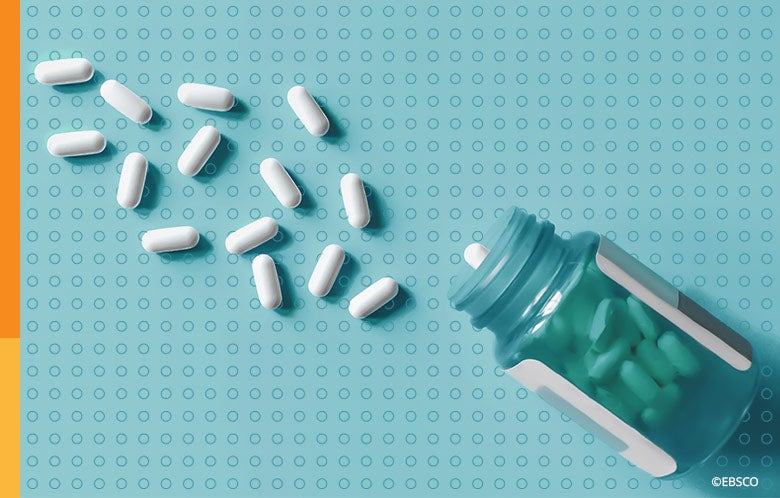Out of necessity, treatment options for COVID-19 first focused on patients with severe life-threatening disease. Effective treatments for patients with mild-moderate disease at high risk for clinical progression have been more elusive. Today, there are a few outpatient options including monoclonal antibody therapy and antiviral agents that should contribute to reducing hospitalizations and deaths due to COVID-19.
Who is eligible for outpatient therapy?
All patients with COVID-19 not requiring hospital care should be advised to isolate and monitor symptoms. Patients should be instructed to seek medical care if they have trouble breathing, persistent pain or pressure in the chest, new confusion, inability to wake or stay awake, or pale, gray- or blue-colored skin, lips, or nail beds (depending on skin tone). Additionally, antipyretics, analgesics, and antitussives may be beneficial for alleviating fever, headache, myalgias, and cough.
Medical COVID-19-directed therapy may be considered for patients with mild-moderate COVID at high risk for progressing to severe disease. This includes patients 65 years and older, persons with obesity, pregnant individuals, and patients with underlying conditions including cardiovascular disease, hypertension, diabetes, chronic lung disease, immunocompromise, chronic kidney disease, sickle cell disease, and neurodevelopmental disorders. Additionally, patients with medical-related dependence such as tracheostomy, gastrostomy, or positive pressure ventilation not related to COVID-19 are eligible for outpatient therapy.
What are the options for monoclonal antibody therapy?
Several monoclonal antibody therapies are available for high-risk outpatients with COVID-19: bamlanivimab/etesevimab, casirivimab/imdevimab, sotrovimab, and regdanvimab (not yet authorized in the United States). Each monoclonal antibody targets one specific region on the SARS-CoV-2 spike protein and blocks it from entering cells. Antiviral monoclonal antibody therapy is authorized for outpatients with mild-to-moderate COVID-19 at high risk for clinical progression.
Given early after infection, intravenous infusion of monoclonal antibodies can help the body clear SARS-CoV-2 and prevent patients from progressing to severe COVID-19 pneumonia. Monoclonal antibodies are not effective in patients after about seven-ten days of infection because the addition of antibodies to the body’s own defenses no longer makes a difference. They are also not effective in patients who have progressed to requiring supplemental oxygen because the virus has already invaded the lower respiratory tract (and perhaps other organs as well). For patients who have progressed to this stage, more intensive management is required.
Because each monoclonal antibody targets just one small region of the spike protein, variants that mutate that region can evade detection. For example, the SARS-CoV-2 Beta variant had mutations that changed the spike protein sites targeted by bamlanivimab and etesevimab, meaning that bamlanivimab/etesevimab is not effective in patients infected with the Beta variant. The Omicron variant has mutations in regions targeted by bamlanivimab, etesevimab, casirivimab, imdevimab, and possibly regdanvimab.
Diagnostic testing for COVID-19 does not identify which variant each individual has been infected with, so recommendations for use of monoclonal antibodies varies by prevalence of circulating variants in a region. Presently Omicron is the predominant variant across the globe, thus only sotrovimab should be considered for use unless it is known that other variants predominate in your region.
What are the options for oral antiviral therapy?
Currently, two oral antiviral agents are authorized for use for high-risk outpatients with COVID-19: molnupiravir (Lagevrio) and nirmatrelvir/ritonavir (Plaxlovid). Authorization for molnupiravir was based on the MOVe-OUT trial showing a 32 percent reduction in hospitalization or death. Nirmatrelvir/ritonavir was authorized after interim analysis of the EPIC-HR trial (currently unpublished) showing an 88 percent reduction in hospitalization or death. Careful review of all medications a patient is taking is important before starting any new medication but is especially critical when using nirmatrelvir/ritonavir. Another combination antiviral therapy, lopinavir/ritonavir, was not shown to be effective in patients with COVID-19 and is not recommended.
Remdesivir (Veklury) is another antiviral agent that is more commonly given to hospitalized patients on supplemental oxygen but may also be offered to high-risk outpatients. However, remdesivir is administered intravenously and requires infusions on three consecutive days, introducing logistical constraints that limit its widespread use.
Notably, oral antiviral pills are easier to distribute and administer than remdesivir and monoclonal antibody therapies which both require refrigeration and intravenous administration from a healthcare professional. However, antiviral pills remain in short supply, so their impact on the pandemic has yet to be fully realized.
Therapies for high-risk patients with mild-moderate COVID-19 should contribute to a reduction in hospitalizations and deaths. That is, as long as these therapies are widely available and remain effective against current and future variants.



